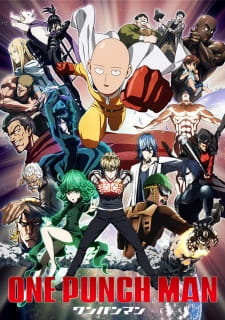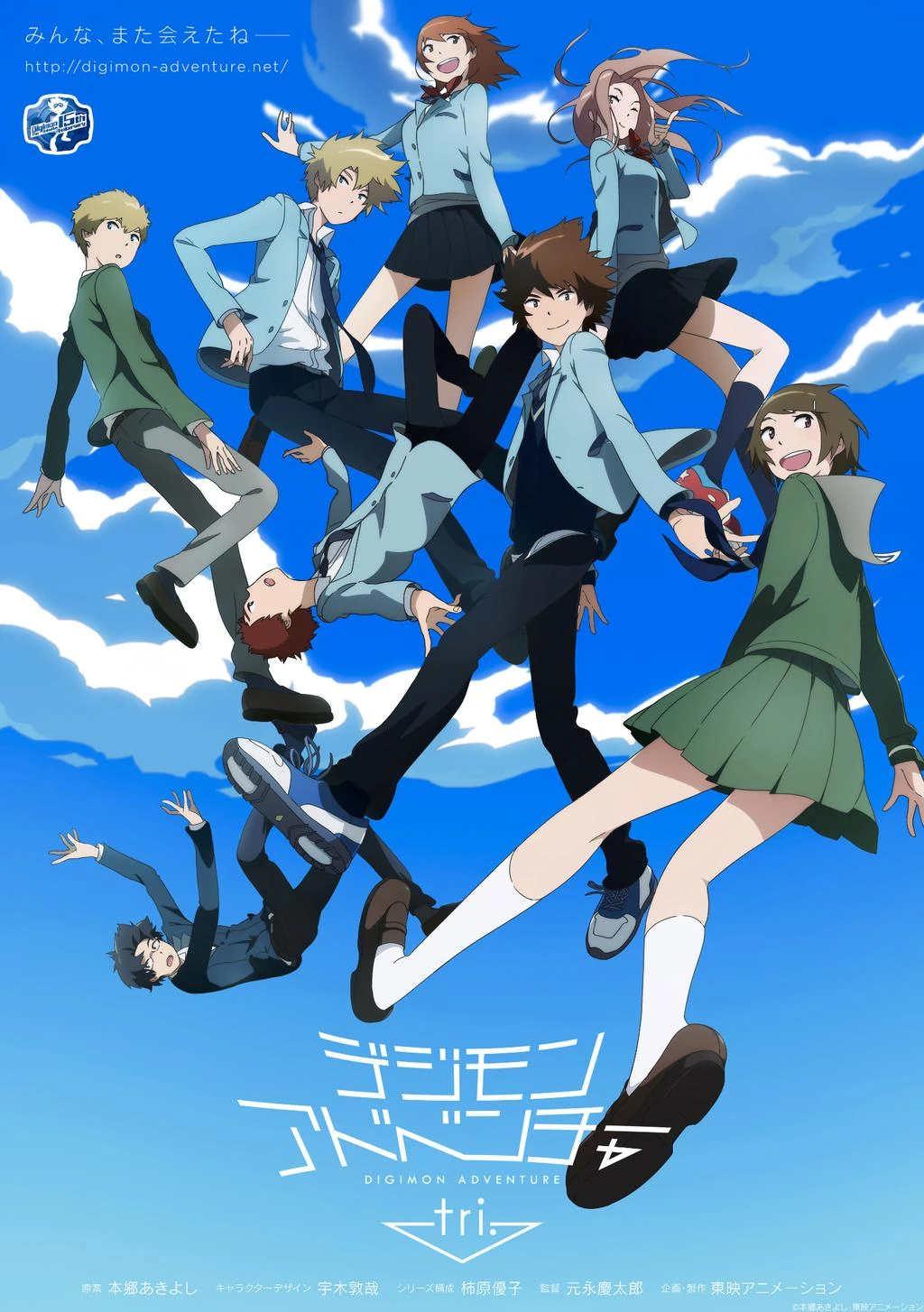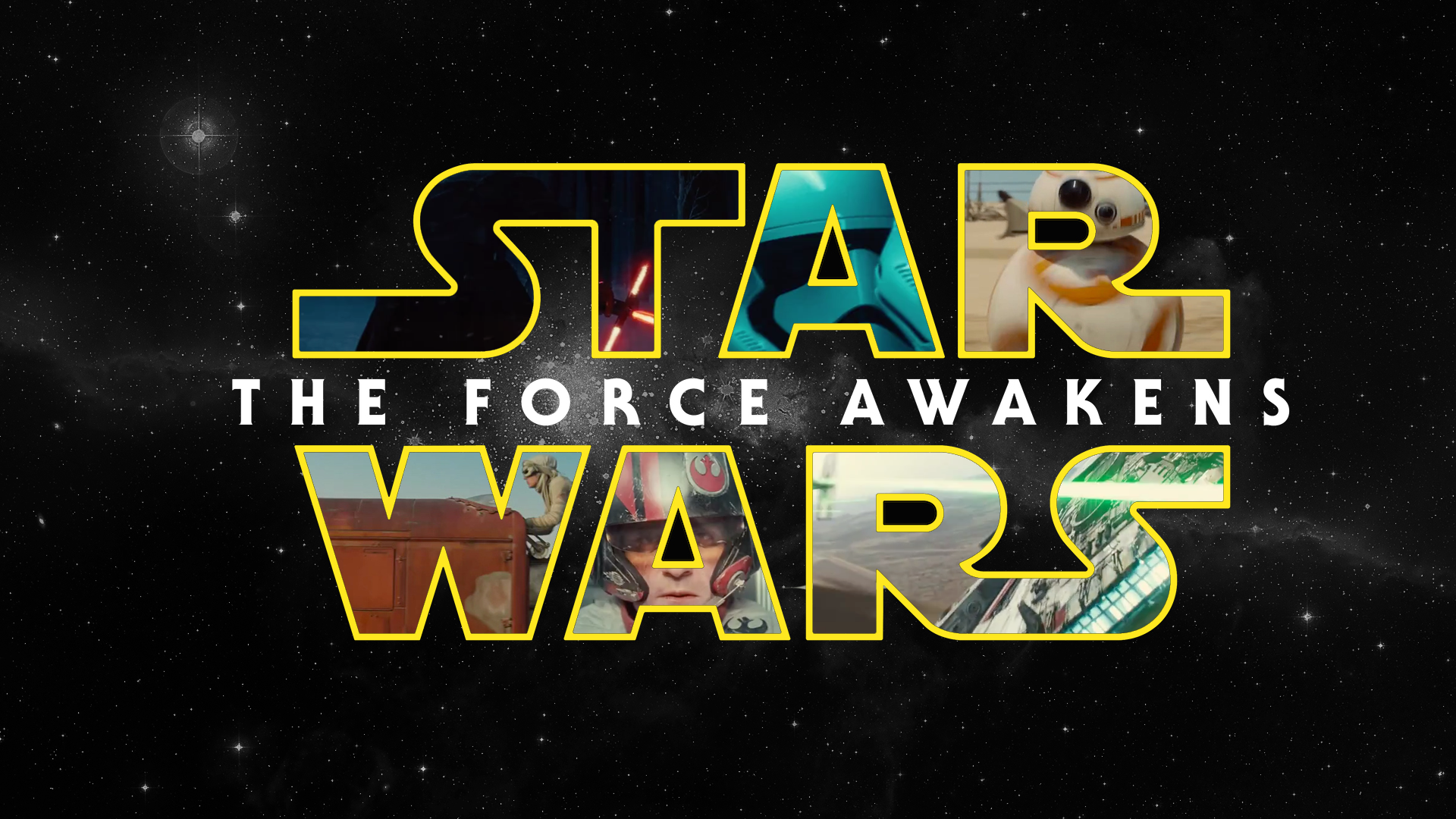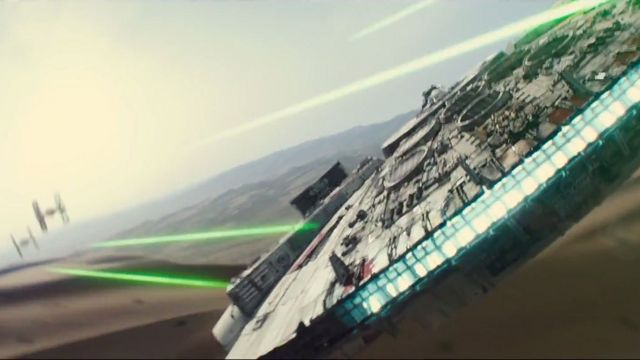So in case you hadn't noticed, maybe you live under a rock or something, the new
Star Wars came out last month. I can't remember a film that has had more build-up, hype, and speculation as this one. So much pressure to live up to, especially the expectations of just about everyone. "It has to be good!" we said, in order to wash the toxic taste of those pesky prequels out of our mouths. Luckily for us, the new film:
The Force Awakens, actually ended up being pretty dang good...depending on who you ask. Despite the high amount of praise that the film has received it has also been subject to a decent amount of criticism as well. Some of this criticism is fair but some of it seems a bit unfair and that brings me to the purpose of this article. This article is meant to analyze these criticisms and encourage people to look at the film in a new light. I'm not trying to put down anyone's opinions. So, the only left to do is to get started then. Lets go:
"The Film Leans Too Much on Our Nostalgia"
There is a fair bit of nostalgia thrown around in
The Force Awakens. We have the Millennium Falcon, Han Solo, references to Darth Vader, Princess Leia, and a whole slew of other nostalgic references to the previous films in the series. So to break it down; why exactly are people so mad? For some, throwing in these nostalgia pieces speaks to a lack of creativity or leaning too much on the accomplishments of what the film has done in the past. It would be one thing if these old bits had just been shoehorned in or if Harrison Ford and Carrie Fisher simply mailed in their performances. However, none of these references ever felt forced or unnatural and in fact most of them were cleverly placed around the film. What these pieces of nostalgia do is link the new film back to a history that came before it, an entire universe that the film is trying to immerse you in.
Star Wars will forever be linked with lightsabers, X-wings, the Millennium Falcon, and Darth Vader. Also, most of these references are plot points more than anything, as a sequel you have to explain what happened to these old characters.
Star Wars has an entire history and universe to reference and these keys enable us to connect with the film.
In reality, what these "nostalgia pieces" do is serve as a bridge to the bigger universe and history that came before. They're little easter eggs for us
Star Wars fans to appreciate and get giddy over whenever we see them onscreen. As long as the film doesn't bash you over the head with these references (which
The Force Awakens definitely does not) then all is good. The most surprising thing about his to me is that there is another popular film franchise that does exactly the same thing that
The Force Awakens did every single film...hmmm who could that be? Oh...right, the entire Marvel Cinematic Universe.

Marvel's universe is the king of the easter egg, planting them into every single one of their films. There are throwaway lines in every film that reference characters and places in the Marvel universe, cameos in every movie (tell me how necessary it was for Chris Evans to be in
Thor: The Dark World or Anthony Mackie to be in
Ant-Man as entertaining as those scenes are
), and lots of shameless self promoting for the next film in the series. Not to mention Marvel's obsession with intensified continuity which means missing one stand-alone film could leave you in the dark about certain parts of the
Avengers films. However, when Marvel does essentially the same thing that
The Force Awakens does they get lauded for making smart references rather than for leaning on them. Why the double standard? I as a comic book fan can appreciate many of these references that Marvel makes in the same way I can appreciate a quick line about the Falcon making the Kessel run in
The Force Awakens. If Marvel (and other franchises, it's not only Marvel that does this) is allowed to reference the content of its own universe; why can't
Star Wars?
Lastly, solely leaning on nostalgia does not make for a good film especially when you look at Hollywood's obsession with reboots. Take the most recent
Indiana Jones or last summer's
Jurassic World. Sure, nostalgia sells tickets but just because a film has those nostalgic references, it doesn't mean that the audience is going to overlook the flaws the film has because of it.
Jurassic World in particular was a terrible film, even with its abundant references to
Jurassic Park. Now of course, this brings us to another argument about how Hollywood is starved for creativity. That, however, is a discussion for another time.
"I Wanted a Sequel...Not a Reboot"
This second criticism goes hand in hand with the first one and seems to be the most constant one that I've seen of
The Force Awakens so far; that it possesses so many parallels to
A New Hope that it is almost the same movie, albeit with a new coat of paint. We have a protagonist swept off of a desolate, desert planet through some twists of fate, gets swept up into the Millenium Falcon, the evildoers are looking for a MacGuffin (Death Star Plans, Skywalker map both in droids), there's a big planet destroying super-weapon, a trench run to destroy it, and of course a mentor character dies. What it also does is press a giant reset button on the universe by nuking the New Republic. At the end of
The Force Awakens we're back where we began in a
New Hope: the Resistance vs the First Order as the new Rebels vs Empire. Reboot indeed so it would seem.
However, classifying
The Force Awakens as a reboot is a disservice because it contradicts something that has always existed in
Star Wars.
Star Wars is always about good vs evil and people having to answer a call to action.
The Force Awakens feels like a remake because it recycles the same "hero's journey" style of plotline but it also follows the vision that George Lucas wanted for his films, to rhyme with each other. If you're criticizing this film for being too much like another film in the franchise, maybe you need to rethink what you expect from
Star Wars. Every
Star Wars trilogy is going to follow the "hero's journey".
Star Wars has always been a mythological fairy tale with characters filling specific roles, it cannot exist any other way. There is a bit of symbolism implied with these similarities and the similarities between these characters is not due to lazy writing or a lack of creativity but instead a necessary part of linking the films together. There are several parts of the film that are more guilty than others but look, if you were expecting a
Star Wars film not to rhyme with the rest of the films, then buddy, you just don't know
Star Wars.
Plus, all of the homages in the plot to
A New Hope instead are overshadowed by the loads of new questions that
A Force Awakens brings up: Who are Rey's parents? Who exactly is Snoke? How is Kylo Ren going to complete his training? How is Luke going to train Rey? Will he even agree to train Rey? That's not even half of the questions I had. Also, for those who also complain about
The Force Awakens not giving us enough information; what fun would it be if the film revealed everything right away? It's part of a trilogy and believe me, had they added pieces of exposition those same people would be complaining that there was too much exposition. Part of good storytelling is not overplaying your hand and J.J. Abrams played the right cards for the most part.
(Back to the point):
These parallels are what cause people to say that J.J. Abrams played things a little to close to the chest, not rocking the boat, producing the safe, Disney-approved film that would please everyone and make money. Well, that argument doesn't exactly hold up either. Upon re-examining the film its actually more apparent that J.J. Abrams took bigger risks than people give him credit for. In fact, most of what is considered "playing it safe" is actually pretty risky Let's start with the obvious one.
Killing Han Solo. Its obvious that when Han steps out onto the bridge to confront his son that he's going to die. In fact, its obvious throughout the film that its going to happen since he's ushered into the Obi-Wan role. So let's take a step back: J.J. Abrams killed Han Solo, you know, the franchise's most popular and quotable character. Even if everyone "sees it coming" there is the matter of doing it in a way that is fitting. I mean, this is killing Han Solo people. He can't just die in a random firefight or die offscreen. Considering that the
Star Wars fanbase is one of the most impossible to please, don't underestimate how big of a choice this was for the director.

Second is the entire characterization of Kylo Ren. The character himself has gone through a bit of Memetic Mutation because it is easy to dismiss Adam Driver's performance as "angsty" or emo". However, Driver's performance has been lauded by most critics and to tell the truth, Kylo Ren is such a fantastic villain because he's not a finished product. He's emtional, angsty, and unstable. Hell, he's not even that great with a lightsaber! These flaws are what make him such a compelling villain. Every
Star Wars villain is held to the gold standard of Darth Vader. Abrams already had a huge standard to live up to, especially since the prequels failed to produce a villain even comparable to Vader, just one of their many shortcomings. Not only that, but Ren's character has a similar temperament and attitude as Anakin Skywalker did in the same prequels and we all know how that turned out. To pursue that route again was an incredibly ballsy choice and Abrams pulled it off. Adam Driver was fantastic in the role and there is so much more to be fleshed out in the next few films. Also, every
Star Wars villain has to live up to Vader, so it was a cool meta choice to have a villain in universe who is actively trying to fill that role.
Focusing on what this film does similarly to
A New Hope does a disservice to everything that
The Force Awakens does differently than any other
Star Wars film. How about establishing the film's first true female protagonist along with a strong level of diversity among the main cast? That's a big one! How about the decision to make a runaway Stormtrooper a main character? There are plenty of new things to enjoy in this film that focusing on the tropes that are the same (and ones that
Star Wars invented nonetheless and has every right to recycle) is a waste and a disservice to the new film.
But what is so funny about this claim is that at its core, this argument is essentially "Its too much like the first one". Considering the amount of flak the prequels got for straying from the
Star Wars formula, this argument is just so bizarre. What
The Force Awakens did is restore the series to how its supposed to be: a fast-paced and thrilling space adventure.
The Force Awakens captured that same feeling that many people felt when they saw
Star Wars for the first time. Had the film gone in another direction, fans would be ready to burn J.J. Abrams at the stake for not making a
Star Wars film true to the series. The lesson is that it is that everyone has their own expectations for what they expect something to be and can have trouble accepting it when it doesn't fit their vision. The
Star Wars you know and love is back! That should be enough.
"Rey is a Mary Sue"
This criticism, I find, is one of the harder ones to argue against because Rey is, for the most part, a Mary Sue. At the same time, it is probably the criticism that makes the most angry. In case you're too lazy to click on the hyperlink I so graciously provided; a Mary Sue is a derogatory term used in fiction to describe a female character who is "exceptionally talented in an implausibly wide variety of areas." The piece of this term that most applies to Rey is that a Mary Sue typically does not possess any realistic character flaws and if she does, those flaws are seen as endearing rather than crippling. Mary Sue is the most talented wizard at Hogwarts and does unheard of acts that reduce even Harry Potter to an admiring fanboy. Odds are, Mary Sue and Harry get together at the end. The Mary Sue is derogatory because its places the character on an unrealistic pedestal and it prevents the audience from being able to relate to them.
All of this does apply to Rey. Over the course of the film Rey displays an impressive array of skills. She's a mechanic, a pilot, can fight well with a staff, she uses a blaster to lethal efficiency the first time she (that we know of) uses one. Whenever she gets captured she is able to free herself, she displays zero learning curve with her force powers, and she defeats a trained Dark Jedi during her first time using a lightsaber. Some of these strengths are self-explanatory, her mechanical skills obviously come from her time as a scavenger on Jakku and her ability in combat also stems from her time of Jakku as well. The sources of her other strengths however are a little more vague: her piloting skills and her immense latent force potential as of right now are difficult to trace back. There is plenty of speculation to her origins and certainly when we find out more about her, which we surely will, all will be explained. For now, she remains an impressive talent for reasons. Rey operates on an unheard of level throughout the entire film without displays any real, crippling flaws and she never struggles at any point throughout the film (aside from her first matchup with Kylo Ren). She wows just about everyone she meets: Han Solo wants her to work on his ship, Kylo Ren and Snoke notice her immense power, Maz Konata is drawn to her latent force potential, and Finn is immediately drawn to her and perhaps a bit smitten (which is mostly because she treated him with kindness he'd never received before). Her only flaw seems to be her insistence on waiting for her family on Jakku but that flaw is portrayed to be sympathetic and noble as it implies a strong sense of loyalty and duty. All of these things add up to make Rey a Mary Sue.
 |
| Give you some guesses what these three have in common. |
So yes, Rey is a Mary Sue. However, is this truly a bad thing? For one, the idea that a character has to be flawed is a tad sadistic when we think about it. We want characters to struggle and suffer because that is how life is I suppose. The lesson is simple however, things rarely come easy, nobody is perfect, and that the protagonist's ability to overcome adversity is endearing to us. That sort of thinking applies and works in films that take place in our reality like modern day dramas. However, this is
Star Wars we're talking about, a franchise that sweeps us up from the world we live in and drops us into the middle of an epic space opera.
Star Wars has always been a form of escapism. Simply labeling Rey, a character who lives in a world of starships and supernatural powers, as a Mary Sue ignores the fact that fiction is supposed to be about exceptional people otherwise its not interesting. The counterpoint to this is that Rey breaks the suspension of belief even in the
Star Wars universe. This is not a strong argument either, particularly when comparing Rey to other characters in the film and in the
Star Wars film universe as a whole. What Rey is not, is any more implausible than any of the other characters in the film or when it comes to
Star Wars protagonists.
Rey follows the line of protagonists in the
Star Wars films who have all been "Mary Sues". Luke Skywalker in
A New Hope puts nary a foot wrong. The biggest criticism you can say about him is that he's whiny and a bit impulsive. Both of those traits are what eventually puts him on the path towards rescuing the Princess and blowing up the Death Star. Anakin Skywalker in
The Phantom Menace is the same way. He's a prodigy in just about everything, wins the pod race with a junker of a speeder, has a Midicholorian count higher than even Yoda, and blows up a Trade Federation ship in his first time flying a starfighter. It is not until the second films of their respective trilogies do Luke and Anakin face adversity and shockingly fail. If anything, all Rey is guilty of is being the latest in a line of "Mary Sue" protagonists. She's following the same tropes that are expected of a
Star Wars protagonist and if that is really such a problem, reference my response to the second criticism. The sticking of Rey with the label of "Mary Sue" seems like a disservice and an attempt to tear down the first strong, female character that the film franchise has had. In fact, J.J. Abrams should be applauded for not having Rey fall into the worst of modern movie tropes which is to have a strong female character only for her to lose all that competence in the film's final act. Lastly, considering she's about to undergo Jedi training with Luke Skywalker in the next film, don't expect her to succeed right away.
Alright, so those are the three points that I mostly disagree with. However,
The Force Awakens, while a very good
Star Wars film, is not perfect. There are a few criticisms that I do actually agree with.
"The Third Death Star Was Stupid"
So yes, this one is pretty indefensible but at the same time, I didn't really care. Regardless, it makes little sense for the First Order to build another one of these things after the previous two suffered the exact same fate. On the other hand, Starkiller Base was a plot device that set up some of the best moments of the film's final act. This one I guess just gets signed away to
Star Wars villains' obsession with building giant superweapons with tiny but fatal weaknesses.
"Finn's Plotline is Bulls****"

Let's get one thing straight here, I thought Finn was a great character. John Boyega put in a really strong performance. It's the first time that we've ever seen a Stormtrooper humanized onscreen and it really is a big moment. Fin''s characterization was done very well, except for one part. A big part of Finn's character was his reluctance to kill for the First Order and the moment that tells us so much about him is his reaction to watching a fellow Stormtrooper die. It's a powerful scene that told us so much without having to actually shoehorn some lines into the script about how Finn felt during that scene. (side note: that's actually another complaint people have, apparently people can't deal with "show don't tell" anymore) However, this all gets undone about ten minutes into the film when Finn is gunning down his fellow teammates to help Poe escape and has no hesitation later in the film gutting Stormtroopers with Luke's lightsaber. It's a huge character-plot disconnect that heavily undermines Finn's characterization, despite how strong of a character he was in other scenarios. It's like playing
Grand Theft Auto and the main character whines about how he wants to be a better person and not kill anymore. Meanwhile, on the way to wherever the character is, he probably murdered several civilians and blew up a building because the player ordered him to do it. Fans have been trying to explain away Finn's disconnect but it still feels like a poor fit given Finn's role in the film. I guess the simplest way to describe it is that Finn has a problem with killing innocent people like the villagers at the start of the film but I suppose he has less of a hang up killing stormtroopers because...they're bad people?
"Rathtars"
I sort of forget about the Rathtar scene to be honest because it was such a goofy scene. It does the film some good though, its a rather cheeky scene for Han Solo that let Harrison Ford convince us the character was back. At the same time though, it seems to serve little purpose aside from being the one space monster scene that pretty much every
Star Wars film has.





















